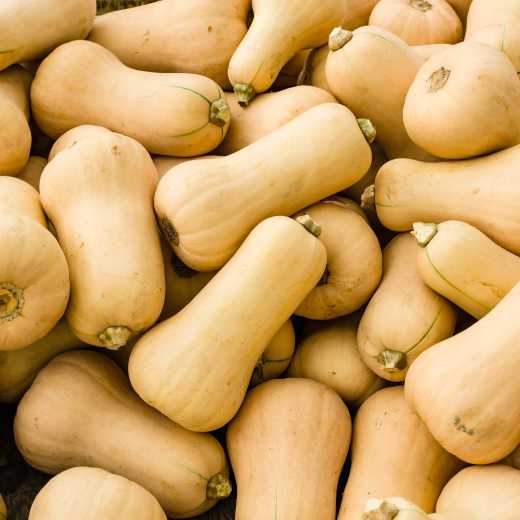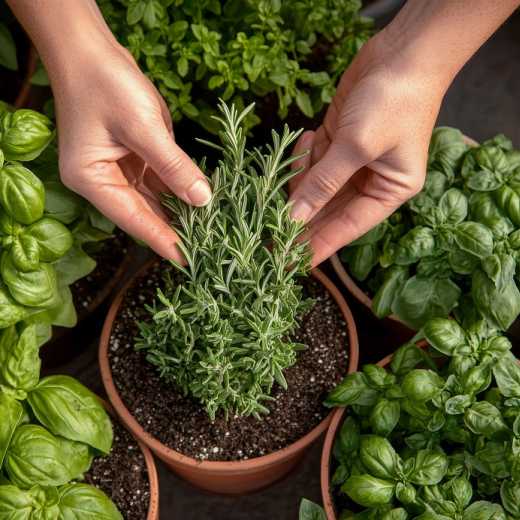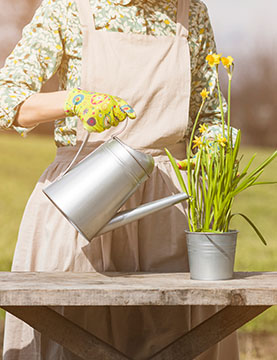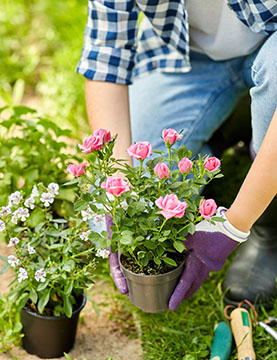Do Mess with Mother Nature
When we garden, we are “messing” with Mother Nature, often going against her wishes as we struggle to grow plants for our pleasure. This is a good time to step back and plan for next year’s garden and landscape. This way you will be ready to implement methods to make your gardening life easier and better once the new gardening season arrives. This also is the best time of year to plant shrubs and trees. You may even find some bargains at local nurseries that would prefer not to have to care for plants over the winter.
Here are a few ways to cooperate with Mother Nature that will make you and your garden much happier.
Use compost and mulch to cut down on 70 to 80 percent of your work by improving the tilth of your soil, feeding your plants as well as the soil organisms, retaining moisture, keeping soil temperatures regulated, and keeping down weeds.
Use natural pest management. Indiscriminate spraying with broad-spectrum insecticides does more harm than good and will kill the beneficial insects as well as the bad guys. The first step is to make sure any insects you see really are the bad guys and not the good guys taking care of the bad guys for you. Use IPM (Integrated Pest Management) to keep pests and weeds under control. IPM means you remove insects by hand, spray with a hose, or spray with safe insecticidal soaps. It means you make sure your soil is healthy and productive and the right plants are planted in the right places. Instead of killing weeds with herbicides that are washed into lakes, rivers, and groundwater, pull them up, hoe them out, and smother them with mulch.
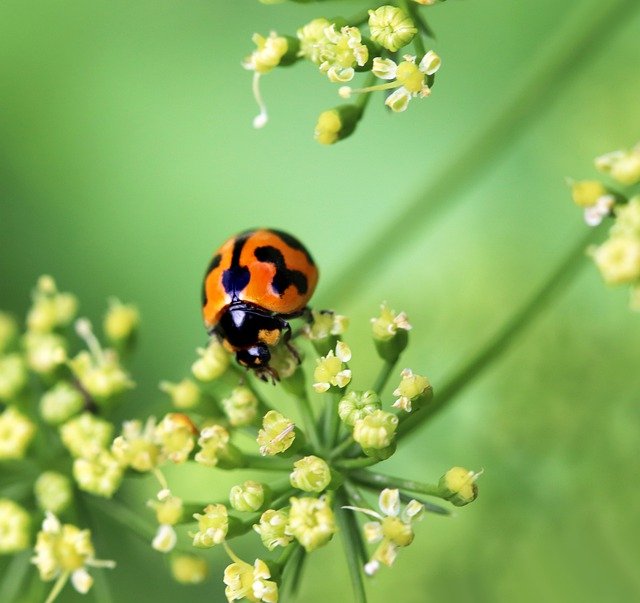
Put your money where it counts. No garden or lawn can be any better than the soil in which it is growing. If the soil isn’t at its best, it doesn’t matter what you do, your garden or lawn will never be at its best. The old saying, “it is better to have a $5 rose in a $50 hole than a $50 rose in a $5 hole,” is absolutely true. Organic matter in the form of compost is the best thing you can add to improve your soil, no matter what kind you are blessed (or cursed) with.
Cut the chemicals. Fertilize with natural products that will benefit the soil and the plants. Use organic fertilizers, fish emulsion, seaweed extract, and manure tea so your plants and soil will gradually and steadily improve. Use compost, and mulch everything possible with three to four inches of organic bark mulches. This will break down eventually into compost and improve the soil structure as well as add soil nutrients and feed the soil organisms. Don’t bag leaves in the fall. Mow them so they add nutrients to the lawn or use them as mulch in garden beds. You can shred before using and mix into the soil or layer over newspapers or unwaxed cardboard to start a new “lasagna” garden.
Mow it tall. Grasses, especially Bermuda grass, should be cut at a height of two to three inches. If you cut the grass too short, there won’t be enough leaf surfaces to support the roots, shade out weeds, and promote water retention by the soil. Mow often so you never cut off more than one-third of the grass blade at a time.
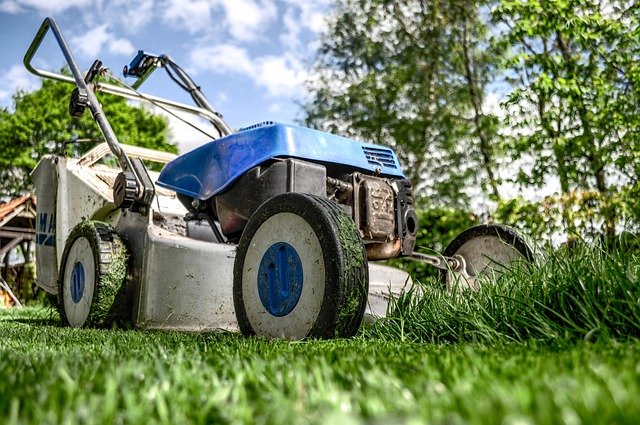
Massage the roots. When transplanting anything container-grown, including annuals, perennials, trees, and shrubs, loosen the roots. Disturb the roots and break them up slightly so they will spread once in the ground. This is the basis for a strong, well-developed food and water delivery system that is the secret to healthy plants. If they are too tightly wrapped to pull apart by hand, use a sharp knife to slice the roots all around.
Deadhead annuals often. An annual’s mission in life is to reproduce by flowering and setting seed. This ensures the survival of the species. Once it has developed seed, the plant can relax and stop blooming. Remove spent blooms from the plant before seeds have been developed so the plant will keep working hard to produce more blooms.
Raised beds can solve a lot of problems. Problems with soil or drainage can be alleviated with a raised bed, and you can custom blend the soil for the types of plants you are growing. Raised beds are perfect for "lasagna" gardening and make it much easier on our backs. Raised beds that are only a few inches high are enough to add compost and mulch that will improve either sandy soil that does not hold moisture or heavy clay soil that holds so much moisture that plant roots will rot.
If you continue to struggle with your garden or landscape, you are missing one of the main reasons to garden – for the fun and pleasure of it. If you aren’t enjoying it, you’re missing the point entirely. So, try messing with Mother Nature to make your gardening experience more rewarding and enjoyable. Happy Gardening!
National Garden Clubs, Inc. is a 501(c)(3) organization that aims to promote the love of gardening, floral design, and civic and environmental responsibility. There is a local club near you, click here to find one and join. Subscribe to the NGC’s blog by entering your e-mail here. You will receive an e-mail when there is a new blog article on the NGC website. You do not have to be an NGC member to subscribe.

 Member Login
Member Login


